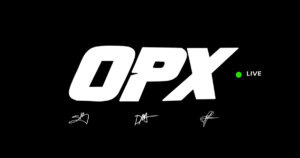 Zcash’s development funding will get slashed without community action
Zcash’s development funding will get slashed without community action Zcash’s development funding will get slashed without community action

Cover art/illustration via CryptoSlate. Image includes combined content which may include AI-generated content.
Funds dedicated to Zcash’s ongoing development will see a drastic reduction from the ZEC block reward halving in October of 2020. Founder Zooko Wilcox has taken the conversation to the community, discussing ways to continue funding the privacy-coin’s growth.
Zcash launched without ICO, pre-mine, or airdrops
The Zcash Founders Reward is scheduled to end at the time of the halvening, an event that reduces mining rewards by 50 percent every four years. Launched in 2016, the Zcash platform was not funded through an initial coin offering. There were also no airdrops or pre-mine conducted by the cryptocurrency’s founders.
Instead, early Zcash investors such as Roger Ver, Erik Voorhees, and AngelList founder Naval Ravikant are entitled to the “founders rewards,” which is 10 percent of the cryptocurrency’s block rewards.
Zcash co-founder Zooko Wilcox, the computer security expert wrote that he hopes the privacy coin’s community members decided to renew the Developer Fund structure, said the co-founder in a blog post. The funding scheme involves allocating a certain percentage of coins from future block rewards to the cryptocurrency’s “core support functions.”
These include resources required for software and business development, regulatory and government outreach activities, and user support. Funds are also needed for Zcash’s security auditing, educational programs, and marketing, Wilcox noted.
Rebranding to Electric Coin Company
The Colorado-based programmer added that he hopes the Zcash community decides to hire the Electric Coin Company (ECC) to do the work required to maintain and improve the cryptocurrency’s protocol.
The Zcash company, one of the main organizations that supports Zcash’s growth and development efforts, rebranded to ECC earlier this year. The firm’s management explained that Zcash is a community-based, decentralized project, and that some of the cryptocurrency’s business-related activities may involve ECC.
As confirmed by Wilcox, a group of professional investors contributed a total of $3 million to fund the initial development of the Zcash protocol. Designed to follow the same issuance schedule as Bitcoin, that maximum supply of Zcash’s native cryptocurrency, ZEC, is capped at 21 million coins.
During the first four years of Zcash’s existence, 2.1 million or 20 percent of the 10.5 million ZEC coins mined will be distributed to the project’s founders. The remaining 8.4 million coins will be given to Zcash’s proof-of-work miners.
Zcash successfully completes important milestones
Zcash’s early investors will receive a “small fraction” of ECC’s equity in return for their initial investment of $3 million, according to Wilcox. In addition to equity in the company, Zcash’s early backers got a small percentage of the “founders’ rewards” coins, which were paid out during the first year of the privacy coin’s existence.
The first version of the cryptocurrency, called Zcash 1.0, was delivered on time and “under budget,” Wilcox noted. He also mentioned that Zcash has provided $10 billion worth of transactional value to its users.
Elaborating on how he secured additional funding for Zcash, Wilcox revealed that him and Nathan Wilcox, ECC’s founder and CTO, bought a small share of the founders’ reward back from some of the early investors. The coins acquired were allocated toward funding Zcash’s ongoing operations, instead of being awarded to the crypto’s founders.
Donating half the wealth he expects to see in his lifetime
Wilcox further noted that some of Zcash’s founders including himself donated a portion of their founders’ rewards to a non-profit entity called the Zcash Foundation. The cryptographer claims that he has donated about “half of all of the wealth [he] ever expects to see in this world” to establish the Zcash Foundation.
According to Wilcox, the foundation is an independent entity that plays a key role in supporting Zcash community’s decentralization and overall stability in the long run.
While discussing Zcash’s major technological breakthroughs, Wilcox noted that ECC helped develop “Sapling,” a network update that improves the efficiency of shielded transactions. He pointed out that some of the core technologies used in Sapling such as zero-knowledge proofs have now been widely adopted by other cryptocurrency platforms.
In addition to financing initiatives to enhance the Zcash protocol, ECC and Wilcox invested a substantial amount of resources into programs aimed at educating regulators and community members about the cryptocurrency’s underlying technology.
One of the few cryptos approved by American regulators
Wilcox and the ECC team have also had conversations with regulators that go over how the Zcash platform is compatible with the relevant laws, and how the protocol has been designed to provide adequate security to individuals, corporations, and countries.
The decision to keep regulatory authorities well-informed resulted in American lawmakers officially approving Zcash as a legitimate cryptocurrency platform, Wilcox noted. He also pointed out that Zcash is among the relatively few digital assets that have been listed on leading crypto exchange Coinbase and Gemini.
The Zcash platform may be considered a “working example of a positive alternative for society,” according to Wilcox. He argues that alternative models in which users might be vulnerable to Facebook’s mismanagement of data are no longer acceptable. Other alternatives in which individuals may be negatively affected by the rules and policies of the American or Chinese government should also be rejected, Wilcox asserts.
“Zcash demonstrates that a better model is possible, in which people are protected by their products and services instead of endangered by them, and which fits laws and regulations, and honors the great American traditions of civil rights, free enterprise, trustworthy institutions, and the rule of law.”
ECC did not have to lay off employees during bear market
In his extensive personal letter, Wilcox reveals that around 4 percent of all ZEC being issued each month is part of the Zcash developer fund, and a certain portion of the coins is used to pay salaries to ECC’s employees.
The Zcash co-founder points out that the cryptocurrency project’s funds have been properly managed, and that no ECC workers were laid off during the extended bear market of 2018. Meanwhile, organizations supporting Dash, Steem, and Ethereum Classic, among others, were forced to lay off their workers due to funding shortages.
However, ECC was impacted to some extent from the crypto bear market, and is currently using 8 percent of ZEC’s monthly issuance (instead of only 4 percent) to fund operations and pay employees, Wilcox noted.
Working on Zcash’s new development and funding model
In order to fund Zcash’s development after the four years since its launch, Wilcox and other community members suggested awarding 100 percent of the newly minted ZEC coins to the miners. Alternatively, a new developer fund can be created using a certain percentage of the new coins generated by the proof-of-work cryptocurrency, Wilcox suggested.
Going on to mention that he hopes ECC is chosen by the Zcash community to manage the protocol’s ongoing development, Wilcox wrote:
“As long as ECC still exists, and as long as you—the Zcash community—offer us the kind of funding necessary to do this job, we’re offering to take the job. We love Zcash, we’ve dedicated our lives to it, and we have the best track record in the industry.”
Wilcox concluded his lengthy letter by noting that the Zcash Foundation will be releasing a way for the ZEC community to make a decision.



 Deribit
Deribit 























































































